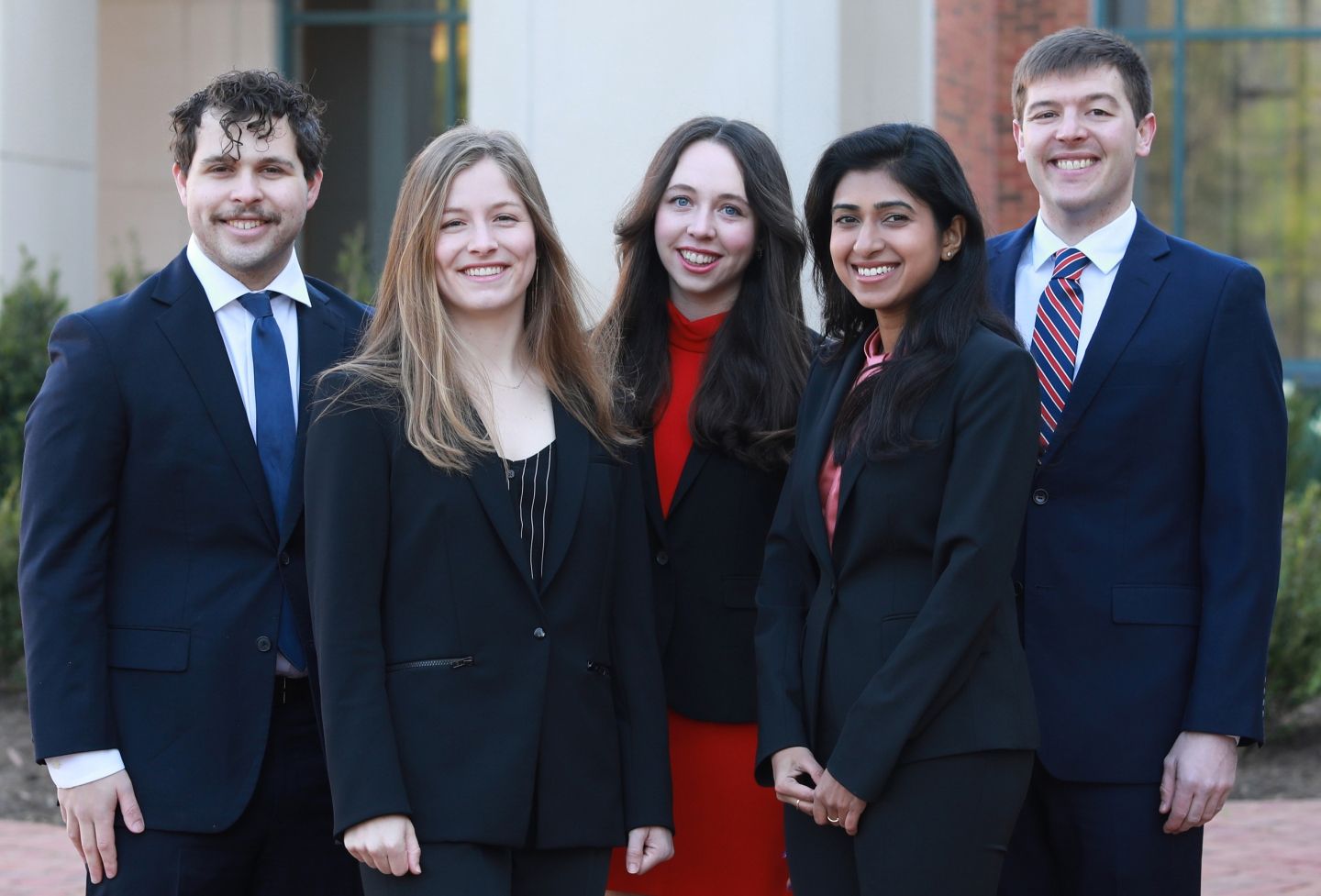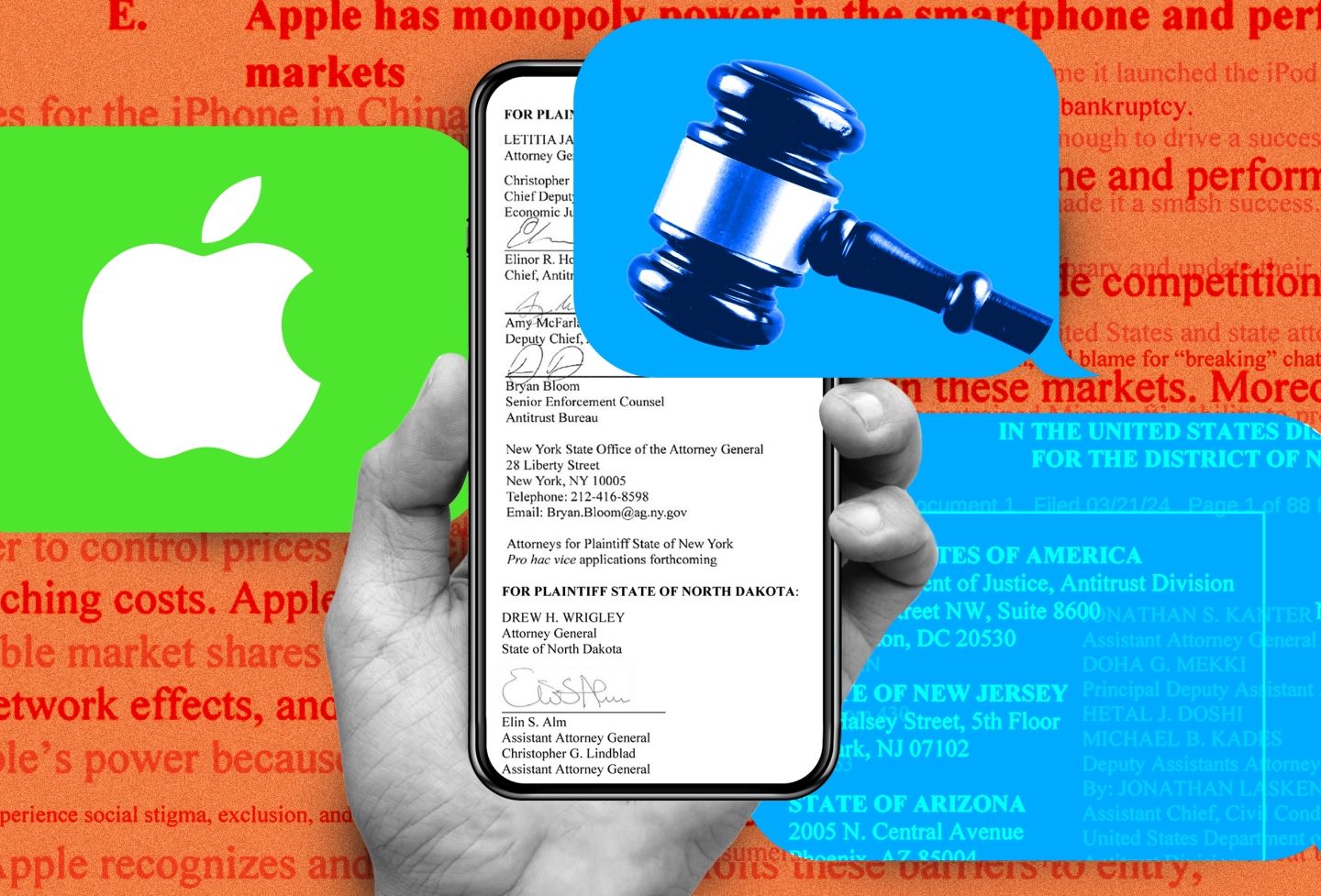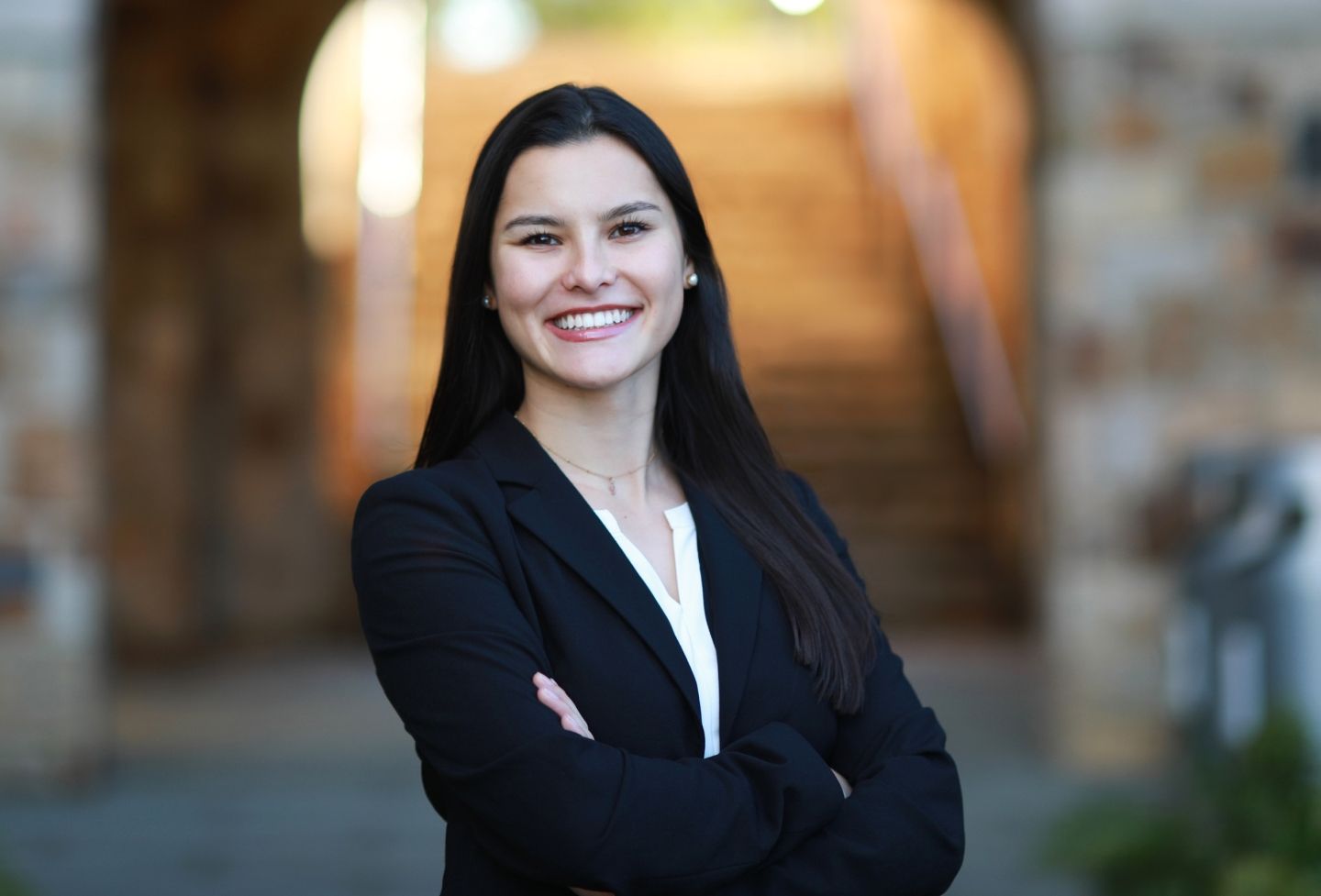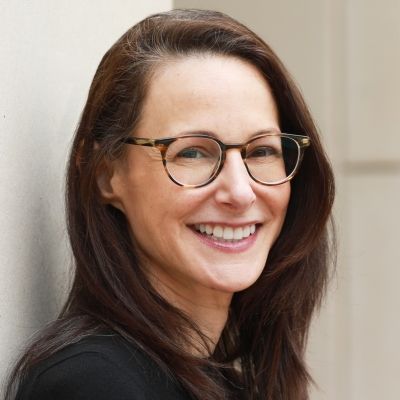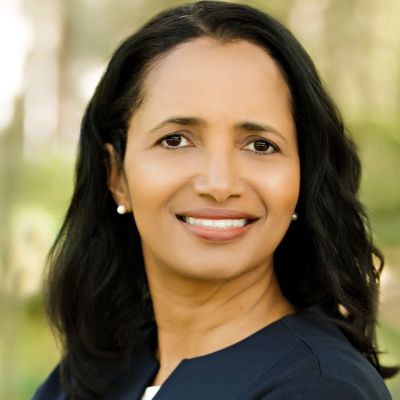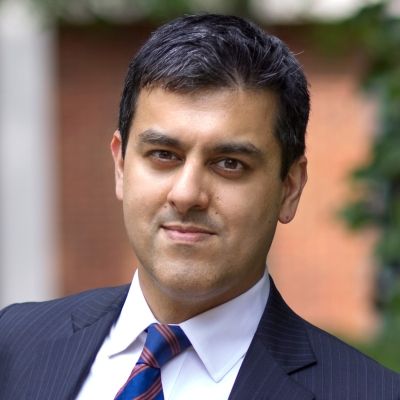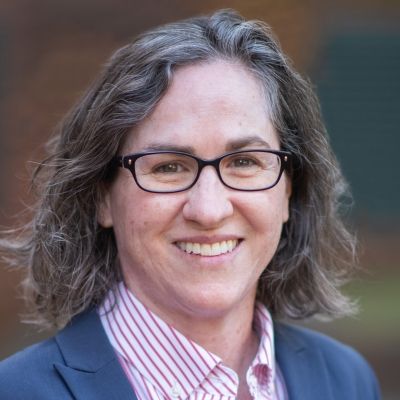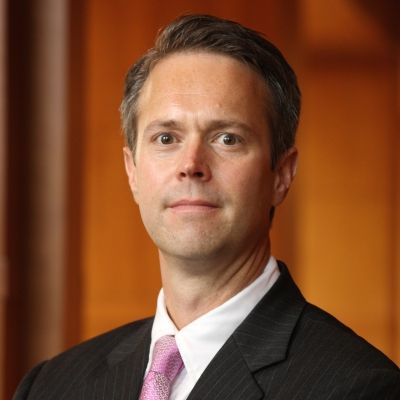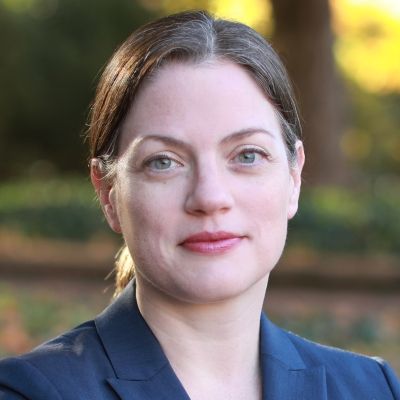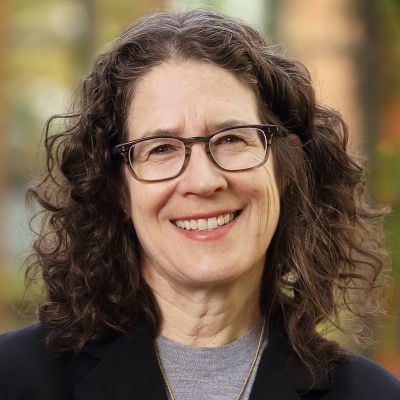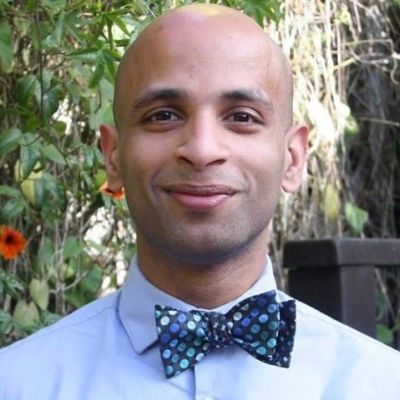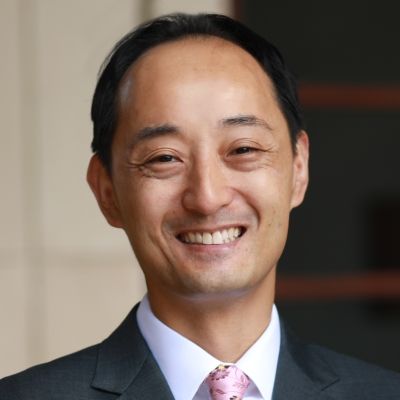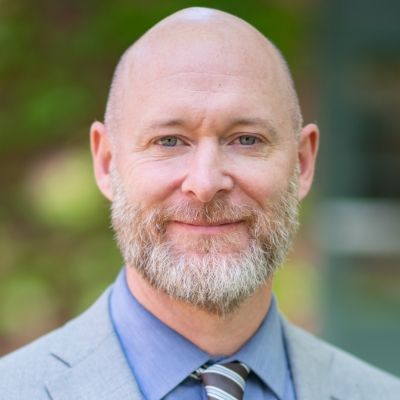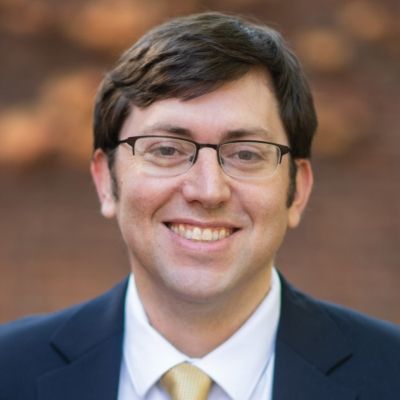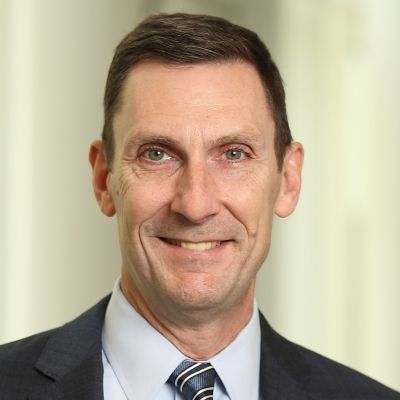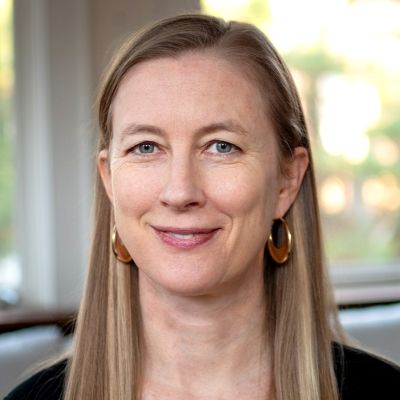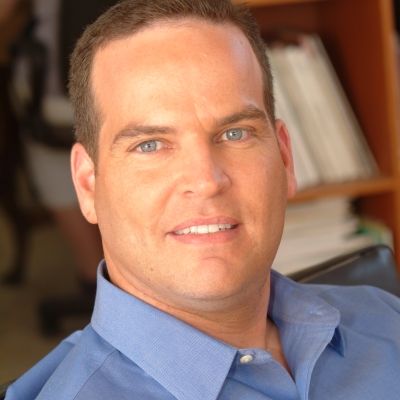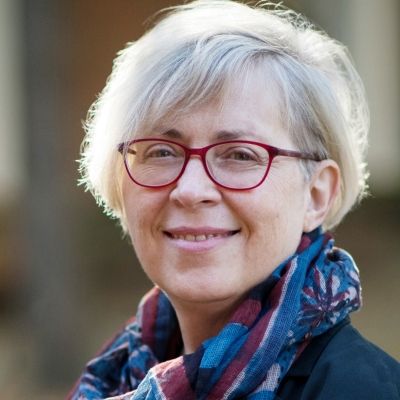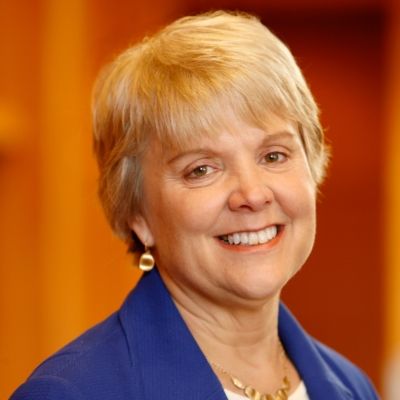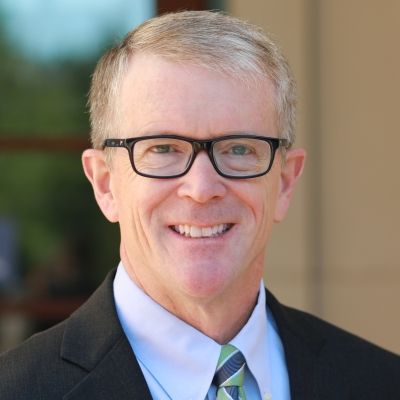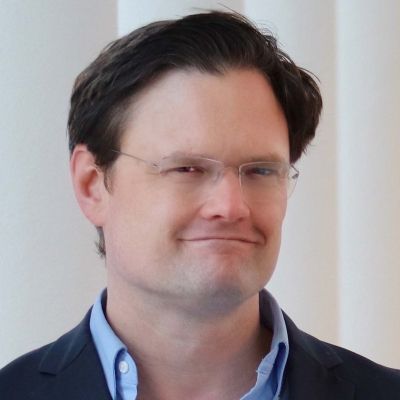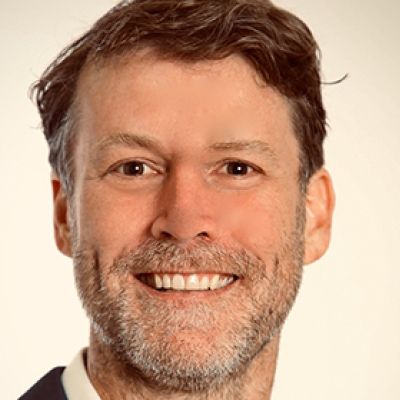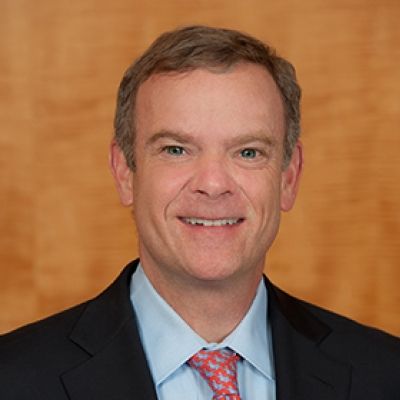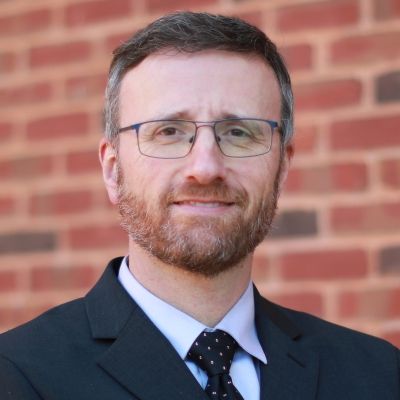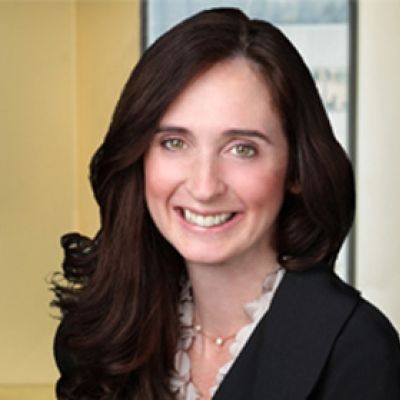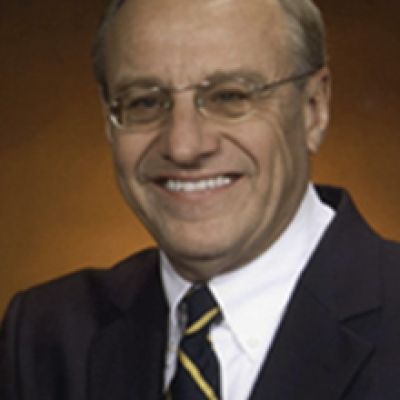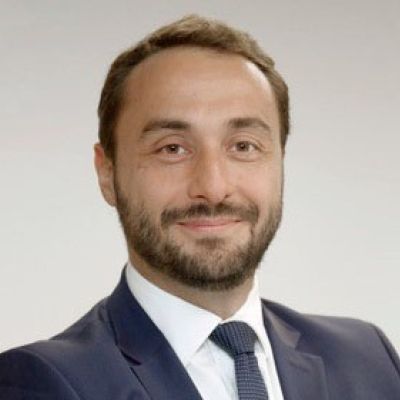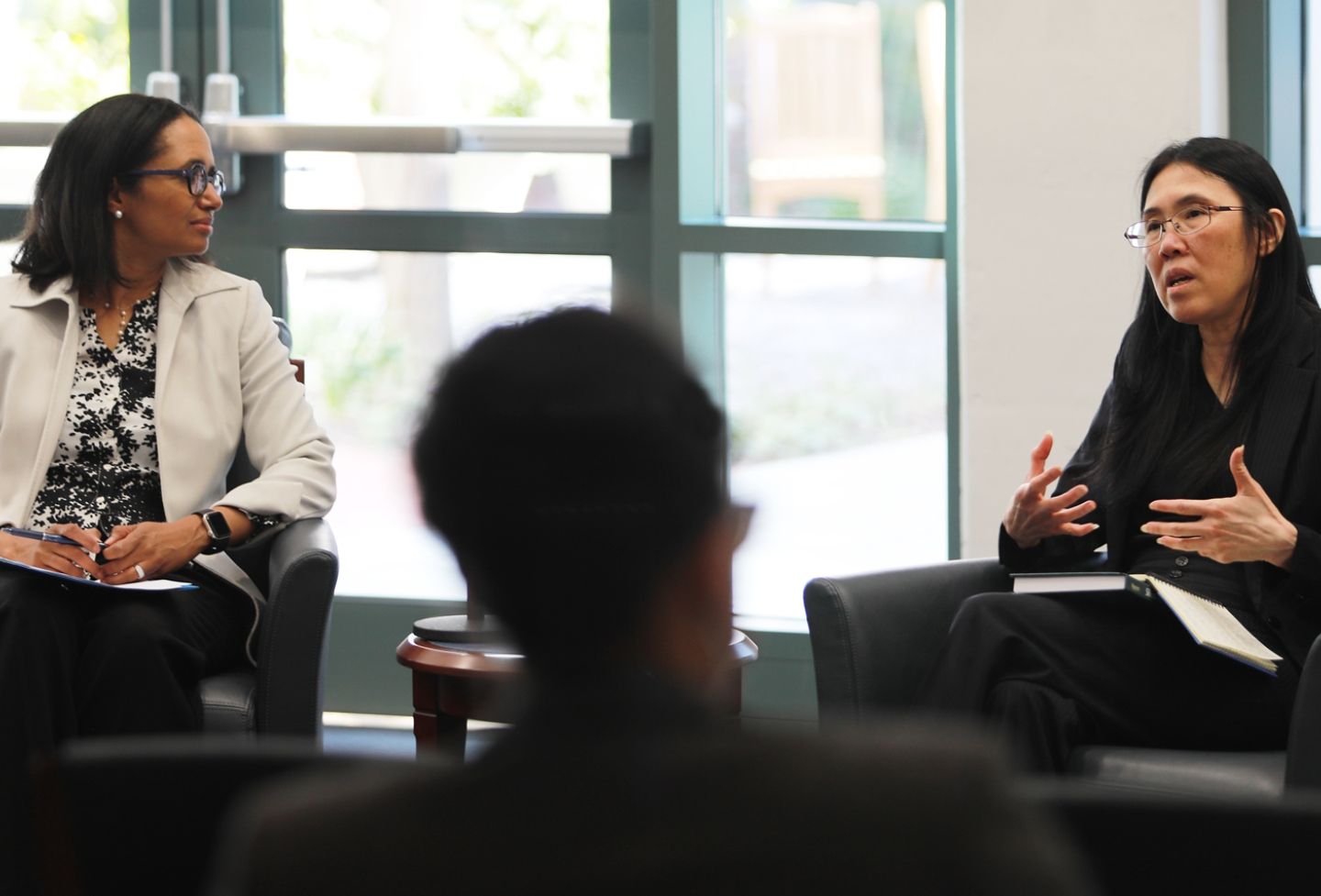About the Program
The LawTech Center at the University of Virginia School of Law focuses on pressing questions in law and technology, including policy concerns, data analysis of legal texts, and the use of technology in the legal profession.
Serving as a locus of faculty research, the center is led by the second-most cited professor in the nation on issues of law and technology, Danielle K. Citron, and intellectual property and trade secret expert Elizabeth A. Rowe. The author of the books “Hate Crimes in Cyberspace” and the forthcoming “The Fight for Privacy: Protecting Dignity, Identity and Law in the Digital Age,” Citron has been deeply involved in reform efforts relating to the regulation of online platforms. Rowe, who is co-author of the first and leading U.S. casebook on trade secrets in addition to a “Nutshell” treatise on trade secrets, has written on the intersection of trade secrets with employment law and technology, as well as the interplay between intellectual property, government policy and innovation.
UVA’s curriculum also benefits from the school’s proximity to the Judge Advocate General’s Legal Center and School, which offers several courses connected to cybersecurity and national security. Virginia’s programs and centers in national security, health law and intellectual property also add to the depth of the course offerings and extracurricular opportunities.
Policy and Regulation
Technology’s impact on everyday lives has raised new areas of concern in law, from the legal responsibilities of online platforms in protecting consumer privacy and data, to managing cybersecurity threats, to the interplay between intellectual property, government policy and innovation. Faculty members are addressing the question of platform governance and regulation from different directions, including moral philosophy and discrimination, privacy and cyber civil rights, criminal justice and antitrust. Their work has common themes — to what extent should powerful intermediaries be subject to regulation? What should regulation look like? What sort of transparency and accountability is feasible and desirable given trade secret protections? Do we need a federal agency devoted to algorithmic governance?
The Data of Legal Texts
Several affiliated faculty members are focused on using computational tools, including artificial intelligence and natural language processing, to reveal insights on laws and how lawyers, jurists and the public interact with them. Other scholars use empirical methods to consider possibilities for criminal justice reform, analyze constitutions around the world and generally look at the law through a different lens.
Technology in the Legal Profession
Technology is also affecting how law is practiced, how judges and juries are making decisions, and how policies get made. The Law School offers courses that teach students about the evolution of legal practice, and professors are researching the impact of what that means for both lawyers and the public.
We live in a golden age of student surveillance. Some surveillance is old school: video cameras, school resource officers, and tip lines. Old-school...
A resilience agenda is an essential part of protecting national security in a digital age. Digital technologies impact nearly all aspects of everyday...
Cyber stalking involves repeated, often relentless targeting of someone with abuse. Death and rape threats may be part of a perpetrator’s playbook...
Fifty years ago, federal and state lawmakers called for the regulation of a criminal justice “databank” connecting federal, state, and local agencies...
Large language models (LLMs) now perform extremely well on many natural language processing tasks. Their ability to convert legal texts to data may...
Faculty Director(s)
Danielle K. Citron
Jefferson Scholars Foundation Schenck Distinguished Professor in Law
Caddell and Chapman Professor of Law
Director, LawTech Center
Elizabeth A. Rowe
Henry L. and Grace Doherty Charitable Foundation Professor of Law
Horace W. Goldsmith Research Professor of Law
Director, LawTech Center
We live in a golden age of student surveillance. Some surveillance is old school: video cameras, school resource officers, and tip lines. Old-school...
A resilience agenda is an essential part of protecting national security in a digital age. Digital technologies impact nearly all aspects of everyday...
Cyber stalking involves repeated, often relentless targeting of someone with abuse. Death and rape threats may be part of a perpetrator’s playbook...
Fifty years ago, federal and state lawmakers called for the regulation of a criminal justice “databank” connecting federal, state, and local agencies...
Large language models (LLMs) now perform extremely well on many natural language processing tasks. Their ability to convert legal texts to data may...
Bao Kham Chau
This chapter provides an overview of computational text analysis techniques used to study judicial behavior and decision-making. As legal texts become...
Generative AI is already beginning to alter legal practice. If optimistic forecasts prove warranted, how might this technology transform judicial...
Barry Friedman
Working hand-in-hand with the private sector, largely in a regulatory vacuum, policing agencies at the federal, state, and local level are acquiring...
This article argues that the fact that an action will compound a prior injustice counts as a reason against doing the action. I call this reason The...
Modern antitrust law has come under intense criticism in recent years, with a bipartisan chorus of complaints about the power of technology and...
Quinta Jurecic
In 2018, Congress rightly highlighted the problem of sex trafficking, which is a moral abomination and vicious scourge. It condemned sites like...
Now that the Supreme Court has revoked the constitutional right to reproductive autonomy, we must reckon with the risks that our surveillance economy...
For too long, cyber abuse has been misunderstood and ignored. The prevailing view is that cyber abuse is not “really real,” though in rare cases...
Section 230 is finally getting the clear-eyed attention that it deserves. No longer is it naive to suggest that we revisit the law that immunizes...
In 2018 the U.S. government announced that Chinese espionage was occurring in university research labs, and the Department of Justice subsequently...
In this Foreword, I lay out the case for intimate privacy—what it is, why it is in jeopardy, and how we can fight to get it back, if we try...
Income tax law and policy are fundamentally intertwined with private markets—causal effects run in both directions. The vitality of public markets can...
Violations of intimate privacy can be never ending. As long as nonconsensual pornography and deepfake sex videos remain online, privacy violations...
Douglas Spencer
Campaigns’ increasing reliance on data-driven canvassing has coincided with a disquieting trend in American politics: a stark gap in voter turnout...
More
Daniel J. Solove
The requirement of harm has significantly impeded the enforcement of privacy law. In most tort and contract cases, plaintiffs must establish that they...
Russia’s invasion of Ukraine has put to the test theories about how cyberattacks fit into conventional war. Contrary to many expectations, cyber...
Kathleen Creek
This article examines the complaint that arbitrary algorithmic decisions wrong those whom they affect. It makes three contributions. First, it...
Nyja Prior
Artificial intelligence tools (“AI”) have great potential to improve government functions and efficiency. These algorithmic tools, protected by trade...
More
A number of technological and political forces have transformed the once staid and insider dominated notice-and-comment process into a forum for large...
More
In 2021, the United States and other governments formally blamed Russia for a wide-ranging hacking campaign that breached the update process for...
Some who should know argue, and I find plausible, that among these aspects of AI, accumulation and organization of data sets is the most significant...
Few issues have aroused more interest of late than the role of “platforms” in the economy. The Supreme Court has recently made the what is likely to...
Brandon L. Garrett
The present study examined whether a defense rebuttal expert can effectively educate jurors on the risk that the prosecution's fingerprint expert made...
Daniel J. Solove
Through the standing doctrine, the U.S. Supreme Court has taken a new step toward severely limiting the effective enforcement of privacy laws. The...
Intimate life is under constant surveillance. Firms track people’s periods, hot flashes, abortions, sexual assaults, sex toy use, sexual fantasies...
Jennifer L. Doleac
We evaluate the impacts of adopting algorithmic risk assessments as an aid to judicial discretion in felony sentencing. We find that judges' decisions...
Daniel Schwarcz
Cyberattacks have the potential to cause simultaneous, very large losses to numerous firms across the globe, thus resulting in a cyber “catastrophe.”...
More
There has been an explosion of concern about use of computers to make decisions – from hiring to lending approvals to setting prison terms – affecting...
When a state seeks to defend itself against a cyberattack, must it first identify the perpetrator responsible? The US policy of “defend forward” and...
Ryan Calo
The legitimacy of the administrative state is premised on our faith in agency expertise. Despite their extra-constitutional structure, administrative...
The process of searching for relevant legal materials is fundamental to legal reasoning. However, despite its enormous practical and theoretical...
Bo Cowgill
We examine the microeconomics of using algorithms to nudge decision-makers toward particular social outcomes. We refer to this as "algorithmic social...
Brandon L. Garrett
As criminal justice actors increasingly seek to rely on more evidence-informed practices, including risk assessment instruments, they often lack...
More
As Congress considers possible federal regulation of facial recognition technology in the US, it is important to understand the way in which this...
Mary Anne Franks
A robust public debate is currently underway about the responsibility of online platforms. We have long called for this discussion, but only recently...
Attribution of cyberattacks requires identifying those responsible for bad acts, prominently including states, and accurate attribution is a crucial...
Algorithmic decision making is both increasingly common and increasingly controversial. Critics worry that algorithmic tools are not transparent...
U.S. constitutional law prohibits the use of sex as a proxy for other traits in most instances. For example, the Virginia Military Institute [VMI] may...
Leopoldo Parada
This Essay argues that EU taxpayers may challenge digital services taxes as violations of EU law. Specifically, because they exempt all but the very...
Those who wish to control, expose, and damage the identities of individuals routinely do so by invading their privacy. People are secretly recorded in...
More
Mary Anne Franks
Six years after lawmakers first considered the issue of nonconsensual pornography, New York has criminalized the practice. We wholeheartedly support...
Natalie Banta
This article is one of the first to explore minors, digital assets, and estate planning. It argues that there are special considerations when it comes...
Alicia Solow-Niederman
Artificial intelligence, or AI, promises to assist, modify, and replace human decision-making, including in court. AI already supports many aspects of...
U.S. technology companies are increasingly standing as competing power centers that challenge the primacy of governments. This power brings with it...
Attribution of state-sponsored cyberattacks can be difficult, but the significant uptick in public attributions in recent years has proven that...
Robert Chesney
Harmful lies are nothing new. But the ability to distort reality has taken an exponential leap forward with “deep fake” technology. This capability...
Every generation’s intimates have their preferred modes of self-disclosure. Not long ago, intimate partners exchanged love letters and mixed tapes...
Jonathon Penney
A central aim of online abuse is to silence victims. That effort is as regrettable as it is successful. In the face of cyber harassment and sexual...
Neil M. Richards
At the dawn of the Internet’s emergence, the Supreme Court rhapsodized about its potential as a tool for free expression and political liberation. In...
A healthy system of shareholder voting is crucial for any regime of corporate law. The proper allocation of governance power is subject to debate...
Leopoldo Parada
We argue that the high revenue triggers in proposed digital taxes — including the recent Franco-German proposal for a digital advertising tax — may...
This article describes Wayfair and provides some cautions about what it means for the U.S. states and the rest of the world, especially Europe. It...
Christopher Slobogin
At sentencing, youth can be considered both a mitigating circumstance because of its association with diminished culpability and an aggravating...
Daniel J. Solove
In lawsuits about data breaches, the issue of harm has confounded courts. Harm is central to whether plaintiffs have standing to sue in federal court...
Today, patients emanate increasing quantities of health information. However, not all health data are created equal. Questions regarding technology...
Sharon K. Sandeen
Recently, a cacophony of concerns have been raised about the propriety of noncompetition agreements (NCAs) entered into between employers and...
More
Data’s intangibility poses significant difficulties for determining where data is located. The problem is not that data is located nowhere, but that...
Calls for public-private partnerships to address U.S. cybersecurity failures have become ubiquitous. But the academic literature and public debate...
Scholars and courts generally see the harms of state surveillance as arising from the actual or potential misuse of information. State surveillance...
Technology has facilitated both the amount of trade secrets that are now stored electronically, and the rise of cyber intrusions. Together, this has...
More
Josh Goldfoot
Computer crime statutes prohibit accessing a computer without “authorization.” In recent years, this element has attracted considerable controversy...
The ‘social cost of carbon’ is an economic concept that represents – in monetary net present value terms – the damages caused by the emission of a ton...
How would society react to “the Watcher,” a technology capable of efficiently, unerringly, and immediately reporting the perpetrator of virtually...
Recent years have witnessed a dramatic increase in digital information and connected devices, but constant revelations about hacks make painfully...
This chapter addresses the appropriate treatment of a person's digital life when the account holder can no longer manage it. As the Internet becomes...
Concerns about cyberwar, cyberespionage, and cybercrime have burst into focus in recent years. The United States and China have traded accusations...
As part of a symposium on cyberwar, this invited contribution explores the challenges that new technologies pose for international law. Borrowing from...
The latest spying craze is the “stalking app.” Once installed on someone’s cell phone, the stalking app provides continuous access to the person’s...
Frank Pasquale
Big Data is increasingly mined to rank and rate individuals. Predictive algorithms assess whether we are good credit risks, desirable employees...
Frank A. Pasquale
There are several normative theories of jurisprudence supporting our critique of the scored society, which complement the social theory and political...
More
Constitutions are commonly thought to express nations’ highest values. They are near-universally proclaimed in the name of “We the People” and...
This Article explores the impact of federal law on a state fiduciary’s management of digital assets. It focuses on the lessons from the Stored...
Mary Anne Franks
Violations of sexual privacy, notably the non-consensual publication of sexually graphic images in violation of someone's trust, deserve criminal...
David Gray
We are at the cusp of a historic shift in our conceptions of the Fourth Amendment driven by dramatic advances in surveillance technology. Governments...
Helen Norton
No longer confined to isolated corners of the web, cyber hate now enjoys a major presence on popular social media sites. The Facebook group “Kill a...
In 1890, Samuel Warren and Louis Brandeis proposed a privacy tort and seventy years later, William Prosser conceived it as four wrongs. In both eras...
Helen Norton
New expressive technologies continue to transform the ways in which members of the public speak to one another. Not surprisingly, emerging...
Leslie Meltzer Henry
Despite extensive scholarly, legislative, and judicial attention to privacy, our understanding of privacy and the interests it protects remains...
In tort law, the doctrine of contributory negligence captures conduct by the plaintiff which falls below the standard to which he should conform for...
Social networking sites and blogs have increasingly become breeding grounds for anonymous online groups that attack women, people of color, and...
The study of contract law is undergoing a difficult transition as it moves from the theoretical to the empirical. Over the past few decades scholars...
Automated information systems offer an opportunity to improve the democratic legitimacy of the administrative state. Today, agencies transfer crucial...
Distinct and complementary procedures for adjudications and rulemaking lie at the heart of twentieth-century administrative law. Due process required...
When a trade secret owner discovers its trade secrets have been posted on the Internet, there is currently no legislative mechanism by which the owner...
More
Since September 11, 2001, the Bush administration has repeatedly invoked the state secrets privilege in cases challenging executive conduct in the war...
More
When a trade secret is stolen from its owner and posted on the Internet, the default rule is that it becomes a free for all. By virtue of the fact...
More
Should an employer be able to enjoin an employee from working for a competitor when the employee did not sign a non-competition agreement? Under the...
More
Sometimes technological change is so profound that it rocks the foundations of an entire body of law. Peer-to-peer (P2P) filesharing systems - Napster...
Karl M. Manheim
One of the most important features of the architecture of the Internet is the Domain Name System (DNS), which is administered by the Internet...
Could an artificial intelligence become a legal person? As of today, this question is only theoretical. No existing computer program currently...
Resident Faculty
Resident Faculty
Privacy, First Amendment, feminism and the law, civil rights, administrative law
Administrative law, civil procedure, computer crime, federal courts, national security law
International law and litigation, national security, law of war
Business law, contract theory, mergers and acquisitions
Cybersecurity, foreign relations, international law and national security law
Affirmative action and equal protection, constitutional law and theory
Health policy, LGBTQ rights
Comparative and empirical study of public law, courts and legal texts
Environmental law and climate change, administrative law
Criminal procedure, federal courts and constitutional law
Constitutional law, antitrust and communications regulation, national security
Legal theory, constitutional theory, procedure, philosophy of law
Criminal law and criminal procedure
Intellectual property, law and economics
Securities, corporate and derivatives law, taboo markets
Food and drug law, health law, animal law
State, international taxation and policy
Intellectual property, patents, administrative law
Trade secret law, intellectual property, trademark law, patent law
Law and economics, international relations, international law, immigration and refugee law, judging
Other Faculty
Health law and bioethics
Courses and Seminars
The following is a list of courses offered during 2021-24. Numbers in parentheses indicate which academic year(s) the courses were offered, i.e., 2021-22 is coded (22), 2022-23 is coded (23) and 2023-24 is coded (24). (SC) stands for short course and (YR) stands for yearlong.
Advanced Crimes and Defenses (JAG) (SC) (22,23,24)
Advanced LawTech (22)
Advanced Topics in Professional Responsibility (JAG) (SC) (23,24)
Advanced Topics in the Law of Armed Conflict (JAG) (SC) (22,23,24)
Antitrust in the Digital Economy (SC) (22,24)
Bioethics And Law Internship Seminar: Health Policy and Administration (22,23,24)
Bioethics and the Law Seminar (22,24)
Computational Text Analysis for Legal Practice (SC) (22)
Computer Crime Law (22,24)
Copyright Law (22,23,24)
Corporate Law as Innovation (SC) (24)
Critical Analysis of the Military Justice System (JAG) (SC) (22,23,24)
Cryptocurrency Law and Policy (SC) (22,23,24)
Cyber and Information Operations I (JAG) (SC) (22)
Cybersecurity Law and Policy (23,24)
Digital Evidence from Theory to Practice (JAG) (SC) (22,23,24)
Drug Product Liability Litigation Seminar (22,23,24)
Drug Product Liability Litigation: Principles and Practice (22,23,24)
Electronic Discovery (23)
Exercises in Rulemaking: Society, Technology and the Law (SC) (22)
Food and Drug Law (22,24)
Free Speech and the Digital Age (22)
Genetics and the Law (SC) (22,24)
Genetics and the Law: Exercises in Rulemaking (SC) (23)
History and Evolution of Victims’ Rights (JAG) (SC) (22,23,24)
Innovating for Defense (22,23,24)
International Human Rights (JAG) (SC) (22,23)
Internet Law (22,23)
Internet Regulation Seminar (22)
Introduction to Legal Aspects of Cyberspace Operations (JAG) (SC) (23,24)
Introduction to the Law of Trade Secrets (SC) (22)
Law and Artificial Intelligence (23)
Law and Ethics of Biotechnology (23)
Law and Social Science Colloquium (22,23)
Law and Social Science Workshop (24)
Law and Technology Colloquium (22,23,24)
Law of Artificial Intelligence (SC) (24)
Law of Sea, Air and Space Operations (JAG) (SC) (22,23,24)
LawTech (22,23)
National Security Law (22,23,24)
National Security Law Proseminar I and II (JAG) (SC) (24)
Patent Law (22,23,24)
Privacy (22,23,24)
Privacy Law and Theory Seminar (22,23,24)
Privacy Torts (24)
Quantitative Methods (22)
Repugnant Transactions (22,23,24)
Rights of the Accused (JAG) (SC) (22)
Rights of the Accused (JAG) (SC) (23,24)
Science and the Courts (SC) (22,23,24)
Special Topics in Client Services (JAG) (SC) (22,23,24)
Startup of a Medtech Company (SC) (22)
Survey of Patent, Copyright, Trademark (22,23,24)
Taboo Trades (22,23,24)
Taxing Multinationals in a Global Economy (SC) (22)
Trade Secret Law (23,24)
Truth, Lies and Statistics for Lawyers (SC) (22)
Veteran Benefits and Retirement Planning (JAG) (SC) (22,23,24)
War Crimes and Atrocity Law (JAG) (SC) (22,23,24)
Clinics
Advanced Patent and Licensing Clinic (23,24)
Entrepreneurial Law Clinic (22,23,24)
Patent and Licensing Clinic (22,23,24)
Professor Thomas Nachbar of the University of Virginia School of Law offers insights on the possible implications of the Department of Justice’s lawsuit against Apple.
Kashmir Hill discusses her 2023 book, “Your Face Belongs to Us: A Secretive Startup’s Quest to End Privacy as We Know It," with UVA Law professor Danielle Citron during a LawTech Center talk, following an introduction by Professor Elizabeth Rowe. The book explores how facial recognition technology threatens privacy.
Student Organizations
Law, Innovation, Security & Technology
LIST focuses on the novel legal, policy and business problems caused by the recent proliferation of emerging technologies. It educates students about issues in the area; prepares them with practical skills and experience to enter the legal workforce; connects them to a network of mentors, experts and resources; and collaborates with the policy, business and technology communities. Recent areas of focus have included cyber crime, net neutrality and autonomous vehicles, among others. Website
National Security Law Forum
National Security Law Forum connects UVA law students with national security law and broader government issues by hosting speakers, educating students about career opportunities and facilitating student work on national security problems during law school. The forum seeks to produce the next generation of national security law leaders by engaging the school’s faculty, alumni network and connections with the national security community.
Virginia Journal of Law & Technology
UVA Law's only e-journal, VJoLT, provides a forum for students, professors and practitioners to discuss emerging issues at the intersection of law and technology. Recent issues of the journal have included articles on biotechnology, telecommunications, e-commerce, internet privacy and encryption. Website
First-year University of Virginia School of Law student Lauren Grohowski discusses her inventions and how her father’s experience as a lawyer fueled her interest going into law.
University of Washington law professor Xuan-Thao Nguyen discussed her new book, “Silicon Valley Bank: The Rise and Fall of a Community Bank for Tech,” with UVA Law professor Elizabeth A. Rowe. Nguyen’s book provides a first-hand account of the founding, ascent and dissolution of Silicon Valley Bank, a tech community bank founded in 1982 with $5 million that became the nation’s 13th-largest bank and the tech industry’s lender and bank.
